Five Overused Tropes Writers Should Avoid
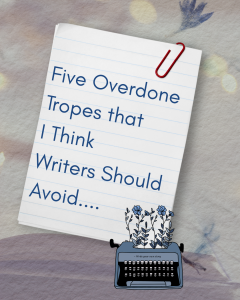
Recently, an author friend of mine was miffed when a line from his novel got edited out: I released a breath I didn’t know I was holding.
“Sure,” I told him. “Everywhere in social media, readers hate that line. They think it’s overused and cliche.”
Another thing that’s overused? Tropes.Authors employ them to add interest, depth, and familiarity to a story. Except, some readers see tropes as cheating – a way to quickly provide exposition without adding any substance. Or, they might feel manipulated by tropes – like they should have a strong and specific emotional reaction.
What can you do?
I’m not suggesting that we should stop using tropes altogether.
Just be aware of these five overdone tropes that I think writers should avoid.Here they are:
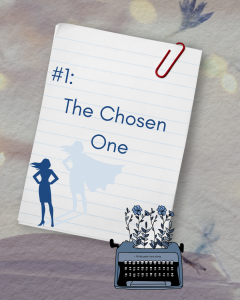
In many fantasy and science fiction stories, the main character is believed to have special powers or abilities, making them the only one who can save the world from destruction. Think Harry Potter, The Hunger Games, and The Matrix. While this trope can be effective in creating a sense of destiny and purpose for the main character, it’s been overused to the point of predictability.
Think about it: The main character is an underdog who discovers their extraordinary abilities and goes on a journey to defeat a powerful enemy. While they’re a reluctant hero, there’s never any doubt that they’ll step up and ultimately prevail.
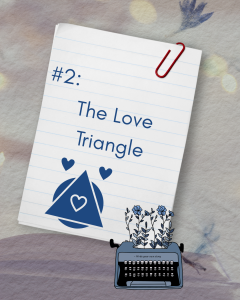
The love triangle is a staple in many romances and YA. It involves romantic relationships between the main character and two potential love interests, creating tension and conflict. Think Twilight, The Vampire Diaries, and The Selection series. The main character is torn between two love interests who have different personalities, resulting in struggle and a difficult decision. The problem is that readers can often predict the outcome of the love triangle from the beginning.
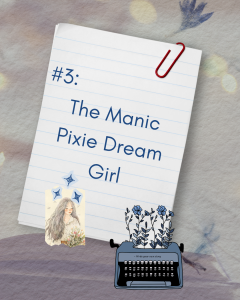
The Manic Pixie Dream Girl is a female character who is eccentric and free-spirited. She serves as a catalyst for the male protagonist’s personal growth. Think Garden State, 500 Days of Summer, Silver Linings Playbook, and many of John Green’s novels. While this trope may seem charming and quirky at first, it’s also become overused, unrealistic, and problematic.
The Manic Pixie Dream Girl trope reduces female characters to mere plot devices rather than fully fleshed out individuals with their own goals and motivations. Also, these “girls” (never women) usually struggle with their mental and/or physical health, but that’s not anything that’s dealt with in the story in a meaningful way. I have some very strong opinions about this trope, and you can read about them in past posts, “The Myth of the Manic Pixie Dream Girl,” and “Young, Beautiful, and on Her Way Out.”
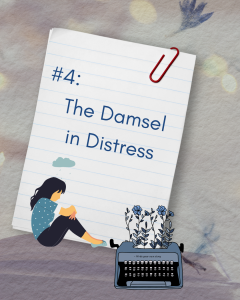
A damsel in distress is a female character who must be rescued by a male hero. Think any classic fairy tale, many of Colleen Hoover novels, and the Outlander series. This trope isn’t used very often anymore. Even Disney tries hard to give their female characters agency. That’s so they won’t send a harmful message to young readers, particularly young girls, that they are incapable of being strong and independent.
Furthermore, this trope also reinforces gender stereotypes, with the male hero as the brave savior, while the female is reduced to a passive and helpless victim. It also limits the potential for capable female characters, as they are often reduced to one-dimensional roles in the story.
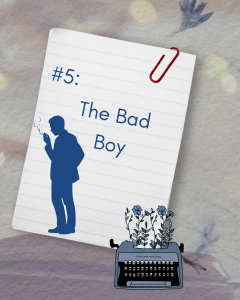
The bad boy is brooding, rebellious, and irresistible to women. Think Fifty Shades of Grey, Gossip Girl and Wuthering Heights. But the bad boy trope romanticizes toxic and unhealthy relationships. He’s dangerous and mysterious; she wants to save or fix him. This not only perpetuates the idea that women can change men, but it also normalizes abusive behavior. Thinking that love can fix someone’s flaws, or that a person’s bad behavior is excusable if they are attractive and charming, is not okay.
Just remember, that while tropes are useful tools for writers, when overused, they detract from the story’s impact. Readers want us to keep our stories fresh, original, and meaningful. Breaking away from these tropes is a first step toward doing just that.
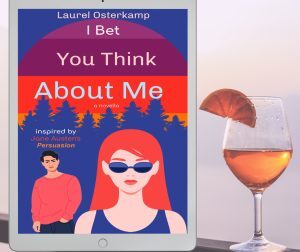
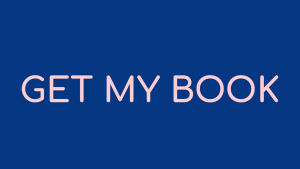
The post Five Overused Tropes Writers Should Avoid first appeared on LaurelLit.com.
The post Five Overused Tropes Writers Should Avoid appeared first on LaurelLit.com.
Laurellit.com
- Laurel Osterkamp's profile
- 523 followers



